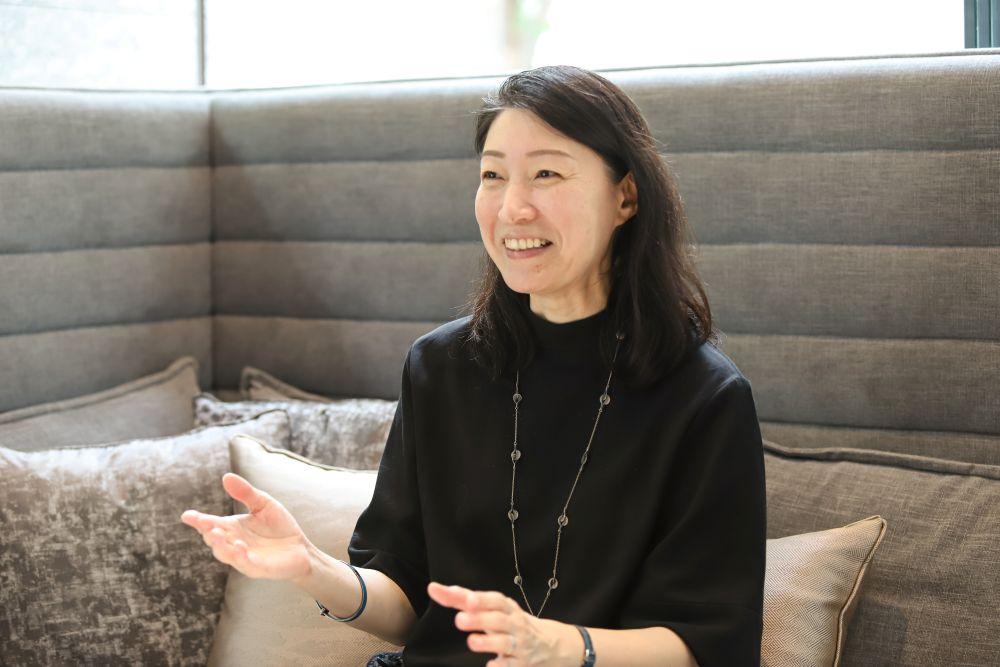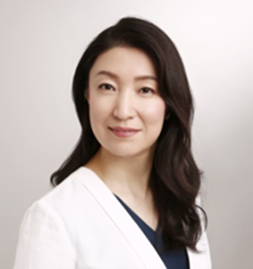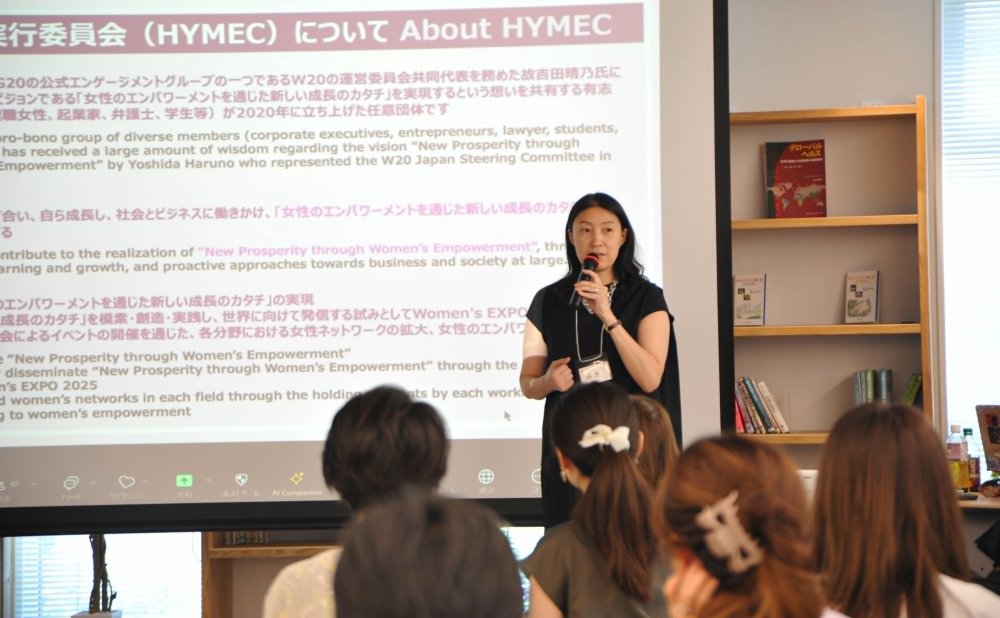【インターン日記】日本の企業をよりよい方向へと導く DE&Iの専門家として切り開く新たな道

株式会社クオリアでは不定期にインターンの受け入れを実施しています。2024年7月から1カ月間インターン生として受け入れたのは、アメリカ合衆国出身の大学3年生、Richard Kazuyoshi Ferris(リチャード・和良・フェリス)さんです。2年前に海外からのリモートインターンとしてクオリアで働き、クロスロードダイバーシティカードの英語版作成に関わっていただきました。その際にDE&I(ダイバーシティ・エクイティ&インクルージョン;以下DE&I)やアンコンシャス・バイアスという言葉に出会い、強い関心を持つようになり、今回は来日してのインターンを行うことになりました。
イベントの準備やeラーニングの翻訳チェックなどに加え、DE&Iの実現に向けて多様な分野で活躍をされている方々6名へのインタビューを行いました。その内容をまとめ「インターン日記」と題して紹介します。
最終回は株式会社カレイディスト 代表取締役 兼 CEOの塚原 月子さん のインタビュー内容を掲載いたします。
Qualia Inc. has been accepting interns, and this time we welcomed Richard Kazu Ferris, a third-year university student from the United States, for a one-month internship starting in July 2024. Kazu san had previously participated in a short-term remote internship at Qualia and expressed interest in DEI (Diversity, Equity, and Inclusion) and unconscious bias. Based on this interest, he decided to join us for a month-long in-office internship.
In addition to various tasks, we asked Kazu san to interview individuals who are actively working to realize DEI. We will be serializing these interviews as "Intern Diaries" in a total of six installments.
In the final installment of our series, we will feature an interview with Tsukiko Tsukahara, Founder and President of Kaleidist K.K..
塚原 月子(つかはら つきこ)様プロフィール

運輸省(現国土交通省)、ボストン・コンサルティング・グループ、カタリスト・ジャパンを経て2018年2月より現職。
ダイバーシティ&インクルージョンの領域における専門家として、経営戦略とマッチしたD&I戦略の策定、組織課題の特定、行動計画の策定支援などを中心とするアドバイザリー、コンサルティングを行うほか、リサーチの実施、研修・講演サービスの提供、イベントの企画など従事。
2019年G20の公式エンゲージメントグループであるW20の日本運営委員会事務局長を務めたのち、2020年よりG20の信任のもと新たに立ち上げられたEMPOWER(ビジネスにおける意思決定層への女性参画を推進するためのG20民間セクターアライアンス、日本は副議長国)の日本共同代表を務める。
30% Club Japanに立ち上げより関わり、現在アドバイザリーボードメンバーの一人。
グローバルの非営利活動の一つであるGDEIB(グローバル・ダイバーシティ・エクイティ・インクルージョン・ベンチマーク)策定のエキスパートパネルの一人。
自身も3児をもつ母親として、育児と仕事の両立を図るべく、働き方改革を実践中。
ダートマス大学タック経営大学院修士(MBA)、東京大学経済学部卒業。
現在の仕事とキャリアについて
現在、株式会社カレイディストにてDE&Iを専門に幅広い活動を展開されている塚原さんにまず、これまでのキャリアと現在の職務についてお伺いしました。
塚原さんは、運輸省(現・国土交通省)でキャリアをスタートさせ、その後ボストン・コンサルティング・グループに転職されました。そこでのコンサルティング業務は、現在のキャリアに繋がる重要な経験となりました。
当初はD&I(DE&I)を専門としておらず、ヘルスケア分野に特化し、製薬会社や病院への経営コンサルティング を中心に活動されていたとのこと。そして、DE&Iという概念との出会いは、当時の職場でワークライフバランスやワークスタイルイノベーションに関するプロジェクトに携わった時で、そこからDE&Iの分野に深く関わるようになったそうです。
ボストン・コンサルティング・グループで12年間勤務した後、Catalyst(カタリスト)に入社。カタリストは1964年にニューヨークで設立されたグローバルな非営利団体で、女性のキャリア推進やDE&Iに関する調査を行い、世界中の会員企業に対してサポートやアドバイザリー支援を提供しています。塚原さんはカタリスト・ジャパンのヴァイスプレジデントを3年間務められました。
Her current job and career
Her current work is running a consulting company that specializes in the diversity, equity, and inclusion area.
She started her career at the Ministry of Transportation, which is part of the Japanese government. After 9 years, she transferred, and moved to the Boston Consulting Group in a Tokyo office. There, she learned how to do consulting work.
She did not specialize in diversity and inclusion at the time. She majored in healthcare, for pharmaceutical companies, or for managerial advice in hospitals, and so on.
During the latter part of her career at the Boston Consulting Group, she had the chance to do some work-life balance, or work-style innovation type work, which brought her to the diversity, equity, and inclusion area.
After 12 years at the Boston Consulting Group, she left the company and started to work for Catalyst. Catalyst is a nonprofit organization; a global organization, located in Manhattan, New York. The organization was established in 1964.
The organization does women empowerment and diversity inclusion research, and provides support or advisory services to their member or supporter companies globally. She became the Vice President of Catalyst Japan and worked for them for 3 years.
日本企業のDE&I推進を加速させるために。新たな道への一歩を踏み出す

そして、2018年、塚原さんは株式会社カレイディストを設立。日本の企業は他国に比べてD&I(DE&I)の推進が遅れていると感じ、自身の経験を活かして日本企業のために活動することを決意されたそうです。カタリストが支援していた企業の多くがグローバルで大規模な企業であったため、塚原さんはより日本企業に重きを置いた活動を行うことにしました。
同社では、企業向けのDE&Iに関する研修や講演、コンサルティングを提供しています。
さらに、塚原さんは自身の会社の経営に加え、プロボノ活動にも積極的に参加されています。その一つが吉田晴乃記念実行委員会(HYMEC)であり、もう一つはG20 EMPOWERです。G20 EMPOWERは、G20諸国間のグローバルなアライアンスで、意思決定レベルでの女性の活躍を推進するためにビジネスリーダーと政府関係者のネットワークを構築しています。塚原さんは、アキレス美知子さんと共にG20 EMPOWERの日本民間代表者の一人として活動されています。
(※)吉田晴乃記念実行委員会(HYMEC):故吉田晴乃さんの意志を引き継いで、晴乃さんのビジョン「女性のエンパワーメントを通じた新しい成長のカタチ」を実現したいという思いをもって集まった有志が、2020年5月に立ち上げた団体。クオリア代表荒金も在籍。
Accelerating DEI in Japanese Companies: Taking the Next Step
Establishing her own company, Kaleidist K.K.. She thought that it might be more interesting to work for Japanese companies, because they need much more diversity and inclusion than other global companies. Catalyst supporters or members are almost all global and large nationals, so she wanted to serve for a Japanese company.
Her company’s work mainly consists of consulting and advising for companies. Similar to Qualia Inc., her company does trainings and lectures, and researches, as well.
Besides her business at her company, She also does some pro bono work. HYMEC is one, and G20 EMPOWER, a global alliance of G20 countries to create the network and alliance between business leaders and government officials to develop and empower women towards decision making levels, is another. She is one of the private sector representatives of G20 EMPOWER in Japan together, with Michiko Achilles.
誰もが働きやすい職場をつくる。DE&Iの専門家としてみる日本の現状と取り組むべきアクション
日本におけるDE&Iの現状について伺ったところ、塚原さんは大企業の経営層は女性活躍推進法に基づいてDE&Iの必要性を理解しているものの、中小企業では状況が異なると感じているとお話しされました。
日本では、従業員301人以上の企業が大企業とされ、これらの企業は行動計画を策定し、その統計を公表する義務がありますが、中小企業にはその義務がないため、経営層の認識が低い可能性があるとのことです。また、都市部ではDE&Iの概念に対する認識が高い一方、地方ではその認識が低く、そのギャップを感じているそうです。
さらに、スイスのIMDが発表した日本の国際競争力ランキングにおいて、1989年には1位だった日本が2024年には38位に落ちていることを指摘し、特に管理職や取締役に就く女性の数が少ないことが競争力の低下に寄与していると述べられました。
Creating Inclusive Workplaces: A DEI Expert's Perspective on Japan
I asked her about some current issues surrounding DEI in Japan. She believes that, when it comes to the top managements of large corporations, many of them are clearly aware of the necessity of diversity, equity, and inclusion, because there is a law for women empowerment in Japan.
These large corporations, which have more than 301 employees, need to develop the action plan for women empowerment and need to disclose their statistics as well. The management of smaller companies, however, as they are not required by the law to know this, might not be as aware. In bigger cities, where large companies are gathered, such as Tokyo and Osaka, She believes more people would be aware of the concepts of diversity, equity, and inclusion, but she believes that the more local and rural areas may not be as aware of these concepts.
She explained that there are several issues surrounding DEI in Japan; one problem being the low level of gender equality in Japan, and how that is really problematic. She brought up a chart showing statistics of the Japan global competitiveness ranking in terms of gender equality level published by IMD in Switzerland, and how it showed that Japan was ranked as number one back in 1989, but it has since fallen to rank 38th, as of 2024. On the same chart, it also showed that in terms of business effectiveness, Japan ranked 51st out of 67 countries. She explained that in Japan, women in management and on a board are very low, and that is the reason Japan’s competitiveness ranking is so low.
個人の行動と社会の変革
DE&Iに関する問題解決に向けた個人の行動について伺ったところ、塚原さんは選挙に行くことの重要性を強調されました。現在、日本の国会の女性議員は15.7%と非常に低い割合です。また、アンコンシャス・バイアス(無意識の偏見)を理解する必要性についても触れ、これは日本だけでなく世界的な問題であると指摘されました。 アンコンシャス・バイアスは誰にでも起こり得るものであり、完全に排除することは難しいですが、その存在を理解し、意識的に行動することが重要だとお話しされました。
塚原さんは、ジェンダーギャップを解消するためには、意思決定権を持つリーダーとの対話を通じて公平性について理解を深めてもらうことが必要だと考えておられます。個人の行動だけでは限界があるため、公的部門や組織のトップ層も積極的に取り組む必要があると強調されました。
The Impact of Individual Actions on Society
We talked about Individual actions one could take to help with issues surrounding DEI. She believes that everyone needs to go to the election. Currently, the national diet is 15.7% female, which is very low.
She also explained that individuals also need to understand unconscious bias. One of the background reasons of gender inequality, not only in Japan, but globally, is due to unconscious bias’s influence. We cannot stop unconscious bias, as it is very natural to have, as a human, but we can stop negative impacts or negative influences of unconscious biases by understanding them. So, try to take action to combat unconscious bias and behave as an inclusive leader.
One other thing she thinks an action could do to help is to have one with a leader or authority with decision making rights or power to understand equity to be able to change the gender gap.
She believes that our issues cannot improve solely through individual actions, but that we need to tackle organizations and systematic actions as well, such as the public sector and organizational top managements. They would need to change their systems or management practices, as she mentioned earlier.
インタビューを終えて
アメリカでは他国で働くことは日常的な選択肢ですが、そもそも日本では日本人が海外で働くことはあまり一般的ではないように感じます。異国で生活することには多くのハードルが伴います。言語の壁はもちろん、暗黙のルールに適応する必要もあります。私自身も、日本でのインターンシップ中に多くの暗黙のルールに直面しました。例えば、ランチ時の混雑したコンビニでの列を乱さないことや、ディナー営業が17時から始まるにもかかわらず、ドアに鍵がかかっていないことなどです。
塚原さんの海外でのキャリアスタートと新しい環境への適応に対する姿勢からは、彼女の高い志が伺えます。
そして、何よりも、私は塚原さんの行動力に何度も驚かされました。G20 EMPOWERでメンバーとして積極的に活動するだけでなく、G20 EMPOWERの日本民間代表者の1人でもあり、且つご自身の会社を経営するにとどまらず、DE&Iの分野でさらに多くのことを成し遂げようとしていることに尊敬の念を抱きました。
インタビューの中で、日本とアメリカのDE&Iに関する教育に関する話題にも触れました。塚原さんは大学や高校、中学校でD&Iに関する講演を行うことがあるそうで、私もアメリカでのDE&I教育についてお話ししました。アメリカでは、集会での講演やビデオ視聴など、D&Iに関するテーマに触れる機会が時折あるとお伝えしました。
また、塚原さんは私がこのトピックに興味を持つようになった経緯にも関心を寄せてくださいました。私は母が日本人であり、幼少期から母が日本で働いていた頃の様子や、女性にとってより良い労働環境が整備されることを願う母の思いをよく聞いていました。それが心に残り、この問題について考えるようになり、解決に貢献したい、あるいはもっと学びたいという思いを抱いています。
My Thoughts
In the United States, I believe that it is not very uncommon for people to decide to work outside of the United States, and workers in the U.S. are also quite used to people immigrating to the U.S. to work.
In Japan, however, it is much more uncommon for Japanese residents to work abroad.
When living abroad, there are numerous hurdles that are difficult to overcome. There is the language barrier, of course, but there are also numerous unspoken rules that you must learn and adapt to.
When I came to Japan for the purpose of this internship, there were many unspoken rules I also had to adapt to. Things like not holding up the line during a lunch rush at the convenience store or knowing that most restaurants open at 17:00 for dinner, even though their doors are unlocked and the lights are on.
I think that Tsukahara san being willing to go abroad and adapt to all of this shows just how ambitious and dedicated she is.
I am always surprised by just how proactive she is, as she is not just an advocate, who already voices concerns and must participate heavily in G20 EMPOWER, but she is one of two representatives of G20 EMPOWER in Japan. This was a big surprise to me, as she is already the founder of her own company, and she is still seeking to do even more in the Diversity, Equity and Inclusion space.
We talked about DEI concepts taught in schools in Japan vs. in the United States. She sometimes gives lectures to University, High School, and Junior High School students regarding diversity and inclusion topics, and many of them are already educated about diversity and inclusion.
She asked me if I was educated on this topic in school, in America. I responded saying that there were occasionally some talks about D&I, through a video they would show at a school assembly or a speaker they would get to talk about it at an assembly, but other than that, I was not very educated on the topic in school. Of course, this could differ from school to school and is not representative of all American schools.
She also asked me how I came to be interested in this topic. I mentioned that my mother is Japanese, and that since I was very young, she would talk to me about how it was for her when she was working here in Japan, and how she wished it was better for women, and that she hopes it gets better. That stuck with me and I have thought about it a lot. It made me want to do something to help, or at least learn more about it.
